What to see in Montalcino in a day
9 June 2017
The destination we recommend today is the homeland of Brunello, Montalcino, located on a hill at the end of Val d’Orcia and far only 37 kilometers from Montepulciano.
This brief guide will help you discovering the treasures of Montalcino in one day, contemplating and tasting the uniqueness of this hamlet.
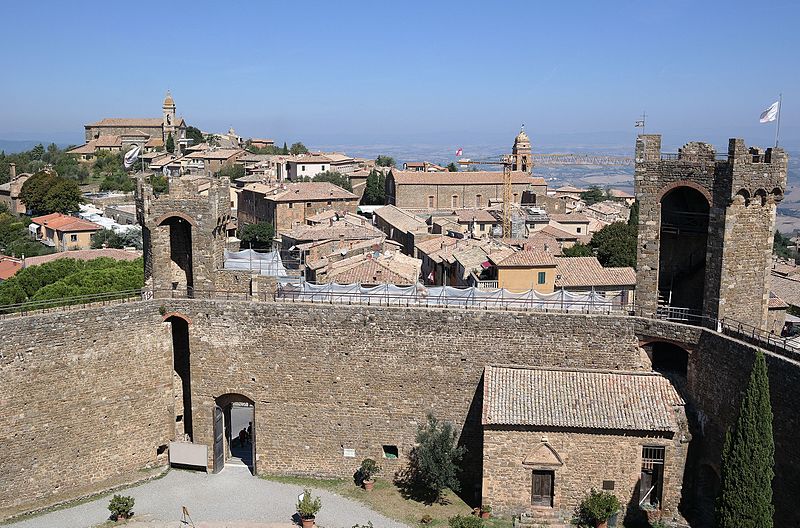
Foto Fortezza di Montalcino, veduta dall’alto. Credits: By Luca Aless, via Wikimedia Commons
Primarily, it’s necessary to begin the visit from its fortified walls, since this hamlet was the last bastion of the Republic of Siena in the 16th century, due to its 4 km of rampants, its 13 towers and 6 entrance gates to the town.
The Rocca di Montalcino is today the privileged set for many events such as concerts, wine tastings and dance shows. In fact, the prestigious Jazz & Wine Festival, came at the 20th edition, a series of jazz concerts with internationally known musicians, that enliven summer evenings.
This festival is traditionally held in July, we recommend checking the official website to know more about the programme: www.montalcinojazzandwine.com.
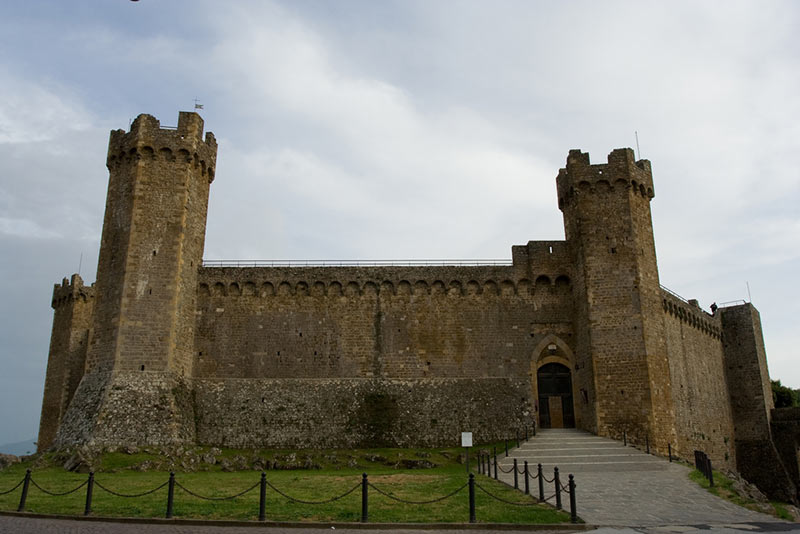
Foto Rocca di Montalcino Credits: Marco Varisco https://flic.kr/p/55KwvL
Inside the Rocca there is also the Enoteca la Fortezza (wine shop and wine bar), which is ideal for savoring glasses of Brunello’s vintage, the DOCG wine that has made Montalcino popular throughout the world.
From the towers of the Fortress you can admire the valleys of Ombrone and Asso, beyond the hills dotted with vineyards.
To visit the historic center, we recommend starting from Piazza del Popolo, where is located the Palazzo dei Priori, also known as the civic palace. This building is adorned by the coat of arms of the podestà that ruled Montalcino and, on the ground floor, there is a statue depicting Cosimo I, the first Grand Duke of Tuscany.
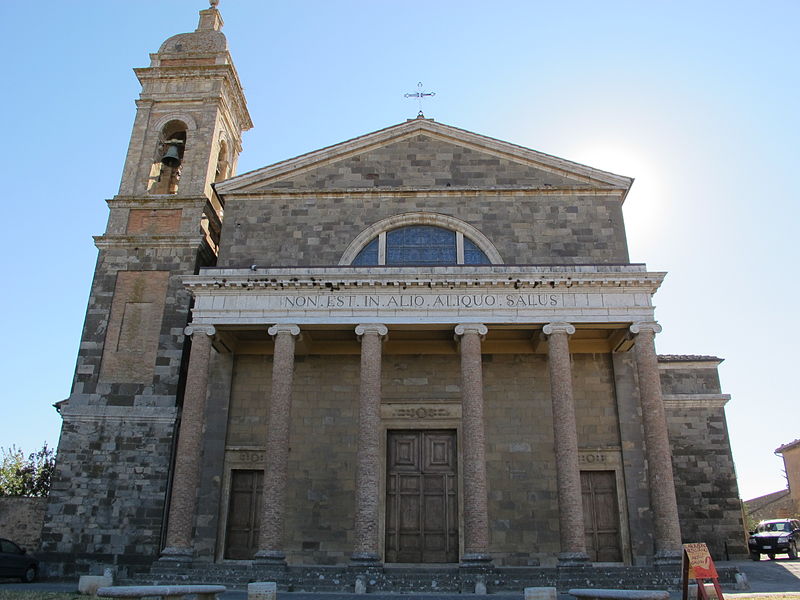
Foto Duomo Montalcino: I, Sailko, via Wikimedia Commons
The Duomo, built in the XIX century, is an example of neoclassical architecture and, unlike other historic buildings in Montalcino, has a bare facade. Furthermore, it has replaced the ancient Romanesque church of S. Salvatore, which stood in the same place (today known as Via Spagni).
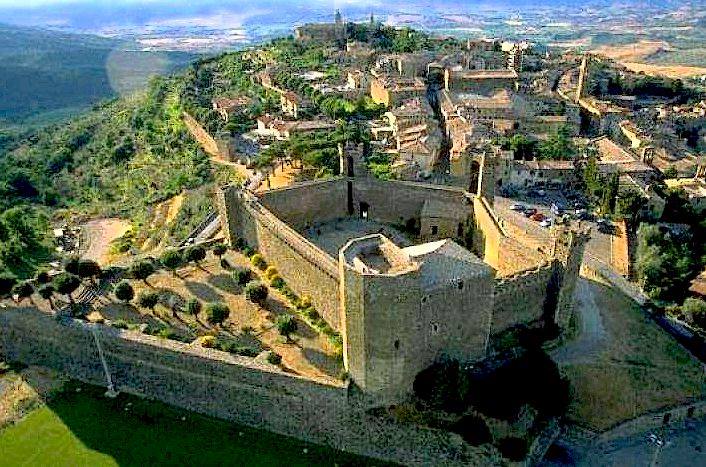
The route continues through the Civic and Diocesan Museum of Sacred Art, located in the former Convent of Sant’Agostino, a museum that boasts an extensive collection of sculptures, frescoes, paintings, miniature codes, sacred vestments, goldsmiths, sacred furnishings, pottery and an archaeological section with finds dating back to Etruscan and Roman times.
Among the works of art to be seen here, we suggest the paintings San Pietro e San Paolo by Ambrogio Lorenzetti and the Madonna with Child by Simone Martini.
The Astrusi Theater is a true architectural gem, designed in 1766 and later redesigned.
Following a careful restoration, the Teatro degli Astrusi (located in front of Palazzo dei Priori) has recently reopened and hosts many theatrical performances: an attraction not to be missed for tourists who stay in Tuscany more than a couple of days.
In our post The most beautiful sights in Val d’Orcia, we have already mentioned the Abbey of Sant’Antimo: a tour of Montalcino should includes a stop at the Abbey, located outside the hamlet, in Castelnuovo dell’Abate.
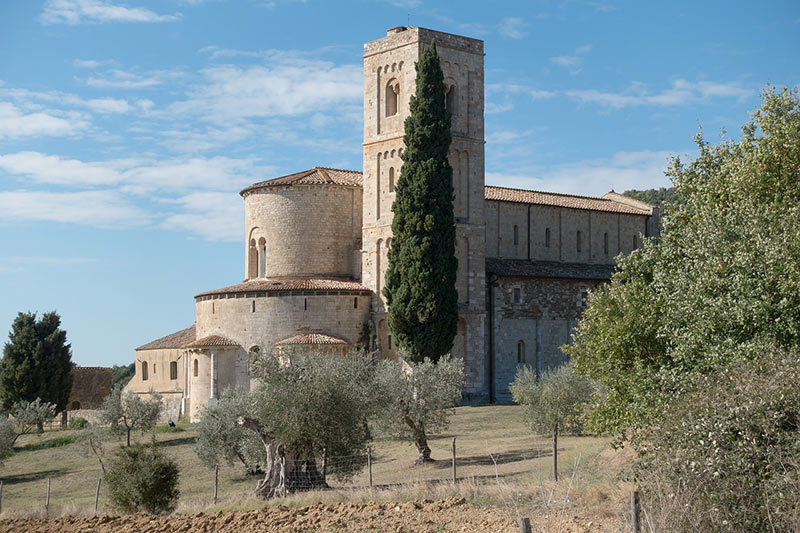
This monastery remained abandoned for many years until, in 1979, a group of French priests founded a new monastic community, inspired by the rule of regular canons of Sant’Agostino.
Thanks to their work, the Abbey of Sant’Antimo has been restored and, in 2016, the Benedictine monks from the Abbey of Monte Oliveto Maggiore took over from the French priests.
Inside the abbey, during Mass, you can listen to the Gregorian chants singed by the monks, an experience that has no comparison elsewhere and that makes your visit to the monastery an emotional and vivid memory.
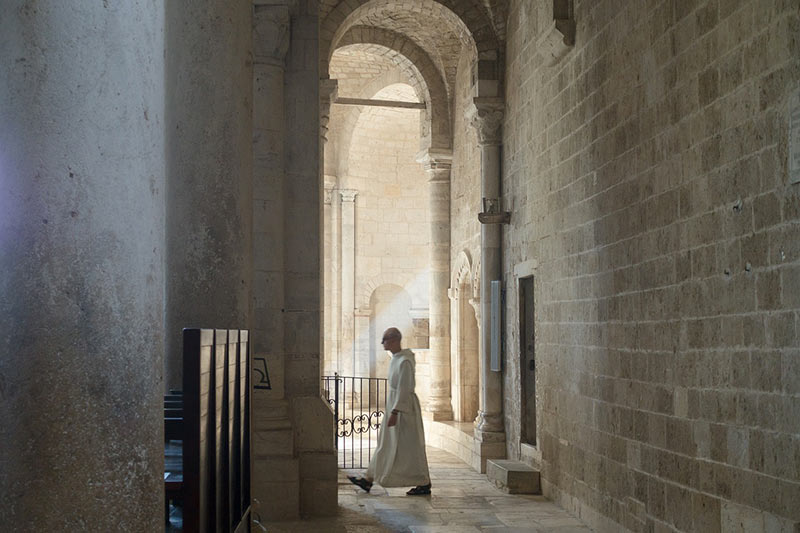
Montalcino is one of the most characteristic destinations of this part of Tuscany and is easily reachable from Borgo Tre Rose, a good reason to spend a long holiday between Val d’Orcia and Val di Chiana.
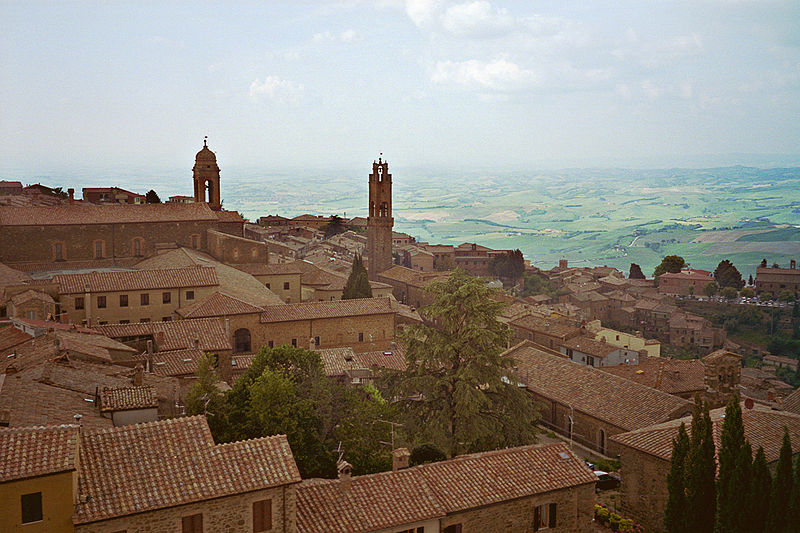
Panorama di Montalcin. Credits: Dale Musselman https://flic.kr/p/4Wx9p


